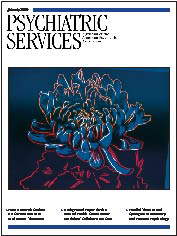A New Look at Community-Based Respite Programs: Utilization, Satisfaction, and Development
In A New Look at Community-Based Respite Programs: Utilization, Satisfaction, and Development, Rhonda J. V. Montgomery, Ph.D., the book's editor and author or co-author of all but three of its chapters, presents the overall results of the Alzheimer's Disease Demonstration Grants to States (ADDGS) program. The book is a helpful synthesis and review of the development and findings of this national demonstration project, which was aimed at expanding support services for older persons with dementia and their caregivers, focusing especially on underserved minority and rural populations.
In the United States, about 4 million people currently suffer from Alzheimer's disease, and that number is expected to grow to 14 million by 2050. Those numbers, as well as the fact that a majority of the care provided to these individuals is by family members—spouses, children, and other relatives or friends—makes this a timely and resourceful book. This demonstration project, which was initially authorized by Congress for three years in 1990 and ultimately extended through 2002, involved 15 states, a national evaluation, and the delivery of more than 3,500,000 units of service to more than 14,400 families—90 percent of whom either belonged to a minority group or lived in a rural area.
The book's seven articles, or chapters, take the reader through the initial findings from the evaluation of the ADDGS to the different profiles of respite use and then onto the importance of cultural factors in clients attitudes toward caregiving and perceptions of service delivery and utilization. It also covers some of the factors related to client satisfaction with respite services and strategies for serving diverse populations, and at the end it provides detailed examples of a few successful Alzheimer's demonstration projects. In my opinion, the most interesting chapters are those that deal with cultural differences and the methods and initiatives attempted by these programs in order to bridge the health services disparities.
Montgomery has a long career trajectory in research, administration, teaching, and public policy planning on issues related to elder care and caregiving. She is the principal investigator for the evaluation of the ADDGS program. As the editor of this book, she pieces together a comprehensive review of the data that were generated by this demonstration program in a clear and convincing manner for clinicians who are interested in learning more about respite care and the elderly population.
The lessons gained from this demonstration project are invaluable and cover key issues about community-based respite services. An essential component that I was glad to see explained in some detail was the recognition of the importance of cultural differences and the need to educate clients about Alzheimer's disease and the resources available to them in their communities. The book clearly demonstrates that the ADDGS program was successful in developing innovative programs and approaches focused on low-income, rural, and minority populations.
Dr. Petit is associate commissioner of the Bureau of Program Services, Division of Mental Hygiene, New York City Department of Health and Mental Hygiene.



